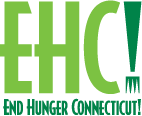President Harry S. Truman signed the National School Lunch Program (NSLP) into law in 1946 as a measure of National Security. He did so after reading a study that revealed many young men were rejected from the World War II draft due medical conditions caused by childhood malnutrition. Since that time the National School Lunch Program has made over 180 million free or reduced price lunches available to children attending public and private schools and childcare institutions. The NSLP works through federal reimbursements paid to schools serving free or reduce priced lunches. Lunches served as a part of the National School Lunch Program must meet USDA meal guidelines. Every day, over 300,000 children eat a school lunch in Connecticut.
Throughout the COVID-19 pandemic, Connecticut’s public schools have served more than four million meals to students under the emergency meals programs. Learn more: School Meals (ct.gov)
The School Breakfast Program (SBP) is a federally funded meals program that started in 1966. The SBP provides nutritious breakfasts to students and gets them ready to learn. As with the case with school lunches, children are eligible for free, reduced, or fully-paid breakfasts based in their families’ incomes. Unfortunately, Connecticut is in the bottom 10 in the nation for the number of schools offering school breakfast and only 51.8% of low-income students are eating breakfast at school (2019-2020). Read the full report from FRAC here.
Resources
Resources
Resources
SNAP (formerly known as food stamps), offers nutrition assistance to eligible individuals and families and provides economic benefits to communities. SNAP helps individuals and families purchase food at participating supermarkets, groceries, and farmers markets. This federally funded program was created to help income-eligible recipients eat well and stay healthy. The program is administered by the United States Department of Agriculture and the CT State Department of Social Services.
EHC! SNAP Outreach
EHC! also offers in person assistance with SNAP applications and redeterminations throughout Connecticut at a variety of locations by request, including WIC offices, senior centers, senior housing, libraries, and food pantries. Contact our Community Resources Coordinator to learn about how to partner with us in SNAP outreach in your community.
Resources
- EHC! SNAP Pre-Screener to Determine Eligibility
- SNAP Outreach Postcard for Schools (English/Spanish)
- SNAP Outreach In Schools Toolkit
- SNAP Web Button Instructions
- CT SNAP Employment & Training Guide
- Maximizing Your WIC & SNAP Benefits Flyer – English
- Maximizing Your WIC & SNAP Benefits Flyer – Spanish
The Elderly Nutrition Program provides older adults access to healthy meals, nutrition education, and nutrition counseling through its Congregate and Home Delivered Meals (or Meals on Wheels) Program. The Congregate Meals Program provides meals and related nutrition services in congregate settings and the Home Delivered Meals Program provides meals and related nutrition services for older adults who are homebound. The target population for the Elderly Nutrition Program are adults age 60 and up who have greatest social and economic need. (Source: Administration on Aging)
Resources
To keep up to date on the latest work around food insecurity, considering joining the following groups & listservs:
School Nutrition Association of CT (SNACT) – SNACT Pack FB Group
Food Research & Action Center (FRAC) E-News
Don’t forget to sign-up for the End Hunger CT! Email List!
